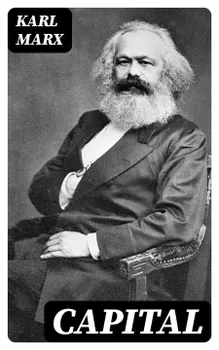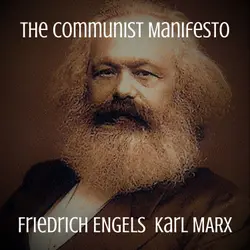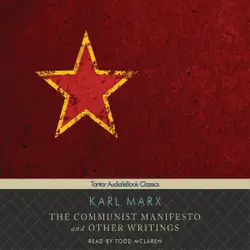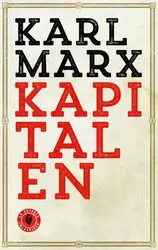In "Capital," Karl Marx presents a critical analysis of political economy, unearthing the dynamics of capitalist production and its inherent contradictions. Employing a rigorous dialectical method, Marx deconstructs the commodity form, labor relations, and capital accumulation, all while weaving a rich tapestry of historical materialism. The text is both a profound philosophical treatise and an empirical investigation, reflecting the industrial transformations of the 19th century and engaging with contemporary economic theories. Its comprehensive critique challenges the moral underpinnings of capitalism, situating economic factors within broader social and historical contexts. Karl Marx, a philosopher, economist, and revolutionary socialist, wrote "Capital" as a culmination of his lifelong efforts to understand the socio-economic structures governing the lives of the proletariat. Influenced by Hegelian dialectics, the Enlightenment, and his own experiences in the tumultuous economic climate of Europe, Marx sought to articulate how capitalist systems exploit labor while simultaneously fostering social discrepancies. His scholarly work draws from a vast array of historical sources and economic theory, establishing him as one of the most influential thinkers in modern history. "Capital" is essential reading for anyone seeking to understand the complexities of the capitalist system and its implications for society today. Its insights into economic structures and class relations remain relevant and provocative, offering a compelling foundation for contemporary debates on inequality and the future of economic systems. Whether one agrees with Marx or not, engaging with his work is crucial for a nuanced understanding of modern socio-economic dynamics.
Capital
Start din 14-dagers gratis prøveperiode
- Full tilgang til hundretusener av lydbøker og e-bøker i vårt bibliotek
- Opprett opptil 4 profiler – inkludert barneprofiler
- Les og lytt offline
- Abonnement fra 149 kr per måned

Capital
In "Capital," Karl Marx presents a critical analysis of political economy, unearthing the dynamics of capitalist production and its inherent contradictions. Employing a rigorous dialectical method, Marx deconstructs the commodity form, labor relations, and capital accumulation, all while weaving a rich tapestry of historical materialism. The text is both a profound philosophical treatise and an empirical investigation, reflecting the industrial transformations of the 19th century and engaging with contemporary economic theories. Its comprehensive critique challenges the moral underpinnings of capitalism, situating economic factors within broader social and historical contexts. Karl Marx, a philosopher, economist, and revolutionary socialist, wrote "Capital" as a culmination of his lifelong efforts to understand the socio-economic structures governing the lives of the proletariat. Influenced by Hegelian dialectics, the Enlightenment, and his own experiences in the tumultuous economic climate of Europe, Marx sought to articulate how capitalist systems exploit labor while simultaneously fostering social discrepancies. His scholarly work draws from a vast array of historical sources and economic theory, establishing him as one of the most influential thinkers in modern history. "Capital" is essential reading for anyone seeking to understand the complexities of the capitalist system and its implications for society today. Its insights into economic structures and class relations remain relevant and provocative, offering a compelling foundation for contemporary debates on inequality and the future of economic systems. Whether one agrees with Marx or not, engaging with his work is crucial for a nuanced understanding of modern socio-economic dynamics.

50 Short Story Masterpieces you have to listen before you die (Golden Deer Classics)
F. Scott Fitzgerald, O.Henry, Mark Twain, Kahlil Gibran, W. W. Jacobs, Anonymous, Thomas Jefferson, Founding Fathers, Plato, Lord Alfred Tennyson, T. S. Eliot, William Dean Howells, Karl Marx, Friedrich Engels, Leo Tolstoy, Washington Irving, Samuel Taylor Coleridge, Bram Stoker, Sun Tzu, Edgar Allan Poe, Lao Tzu, Oscar Wilde, William Blake, Patrick Henry, H.G. Wells, Saki, Herman Melville, Clement Clarke Moore, Bret Harte, Immanuel Kant, Jack London, Henry Ford, G.K. Chesterton, Charles Perrault, Anton Chekhov, D. H. Lawrence, Fyodor Dostoevsky, Franz Kafka, James Joyce, John Muir
audiobook
15+ Political Science. Classics Collection : The Art of War, Tao Te Ching, The Republic, Meditations, The Prince, Utopia, Utilitarianism, Anarchism and others
Sun Tzu, Lao Tzu, Plato, Marcus Aurelius, Niccolo Machiavelli, Thomas More, Tommaso Campanella, Francis Bacon, Thomas Paine, John Stuart Mill, Karl Marx, Friedrich Engels, Vladimir Lenin, Rosa Luxemburg, Peter Kropotkin, Emma Goldman, Leon Trotsky
audiobook
Capital (Das Kapital) : Vol. 1-3: Complete Edition - Including The Communist Manifesto, Wage-Labour and Capital, & Wages, Price and Profit
Karl Marx
book
Capital (Das Kapital) : Vol. 1-3: Complete Edition - Including The Communist Manifesto, Wage-Labour and Capital, & Wages, Price and Profit
Karl Marx
book
Kapitalen : Andre bok : Kapitalens sirkulasjonsprosess
Karl Marx
book
El capital [Capital]
Karl Marx
audiobook
The Communist Manifesto
Karl Marx
audiobookbook
Political Science. Classics Collection:
Marcus Aurelius, Karl Marx, Friedrich Engels, Thomas Paine, Niccolo Machiavelli, Lao Tzu, Sun Tzu, Plato, John Stuart Mill, Vladimir Lenin, Thomas More
audiobook
The Communist Manifesto
Karl Marx, Friedrich Engels
audiobookbook
The Communist Manifesto and Other Writings
Karl Marx
audiobook
Kapitalen : Første bok : Kapitalens produksjonsprosess : kritikk av den politiske økonomien
Karl Marx
book
The Communist Manifesto
Karl Marx, Friedrich Engels
audiobookbook